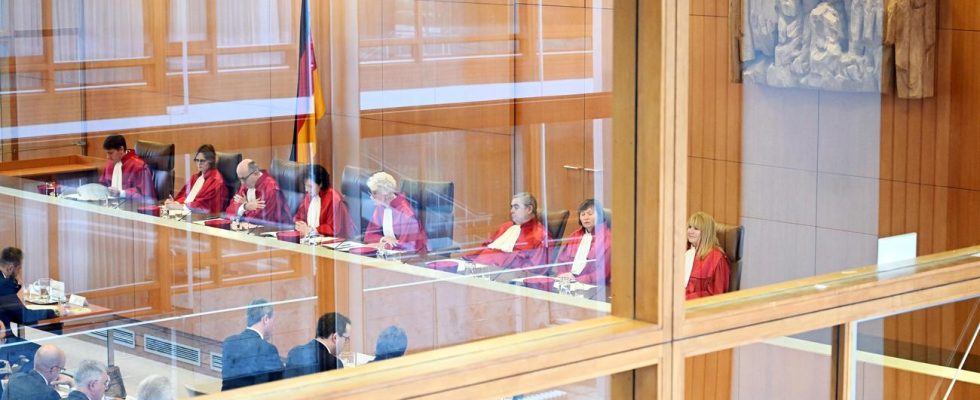The Climate Protection Act can be passed as planned on Friday Bundestag be adopted. The Federal Constitutional Court rejected the urgent application of the CDU Bundestag member Thomas Heilmann, who wanted to prevent the vote in the Bundestag. Three other members of the Union and a member of the Left joined this motion. Heilmann had argued that the Bundestag had not had enough time to find out about the change in the law. This violated his participation rights as a member of the Bundestag.
For the first time, the German Bundestag discussed the federal government’s draft law on the Climate Protection Amendment Act in a reading on September 22, 2023. In April 2024, the coalition factions submitted an amendment to the aforementioned bill, which the majority of the responsible committee members agreed to. The second and third reading and the vote on the bill in the German Bundestag are scheduled for this Friday.
The court announced that Heilmann’s urgent application was currently inadmissible. No further explanation has yet been provided.
Heilmann and environmentalists criticized the law as watering down the law
The reform of the Climate Protection Act provides for fundamental changes. The following applies so far: If individual sectors such as transport or buildings fail to meet legal requirements for CO₂ emissions, the responsible ministries must submit emergency programs the following year. With the reform, compliance with the climate targets should no longer be checked retroactively by sector, but rather with a view to the future, over a period of several years and across sectors. If it becomes apparent in two consecutive years that the federal government is not on track to meet its climate target for 2030, it will have to make adjustments.
Environmental groups criticize this as a softening. Heilmann also fears a weakening of climate protection with far-reaching consequences.
By 2030, Germany must reduce its greenhouse gas emissions by at least 65 percent compared to 1990. Greenhouse gases should be reduced by 88 percent by 2040, and greenhouse gas neutrality should be achieved by 2045 – by then no more greenhouse gases will be emitted and cannot be sequestered again.
Last summer, the Federal Constitutional Court stopped the adoption of the Heating Act (Building Energy Act), for which Heilmann had also criticized the tight schedule. The law was then passed by the Bundestag in September. “I think the procedural errors are even more serious than they were with the heating law,” Heilmann explained on Wednesday. Although the legal text is much less extensive, the complexity of the questions arising from the climate protection reform is significantly higher.
The Climate Protection Act can be passed as planned on Friday Bundestag be adopted. The Federal Constitutional Court rejected the urgent application of the CDU Bundestag member Thomas Heilmann, who wanted to prevent the vote in the Bundestag. Three other members of the Union and a member of the Left joined this motion. Heilmann had argued that the Bundestag had not had enough time to find out about the change in the law. This violated his participation rights as a member of the Bundestag.

